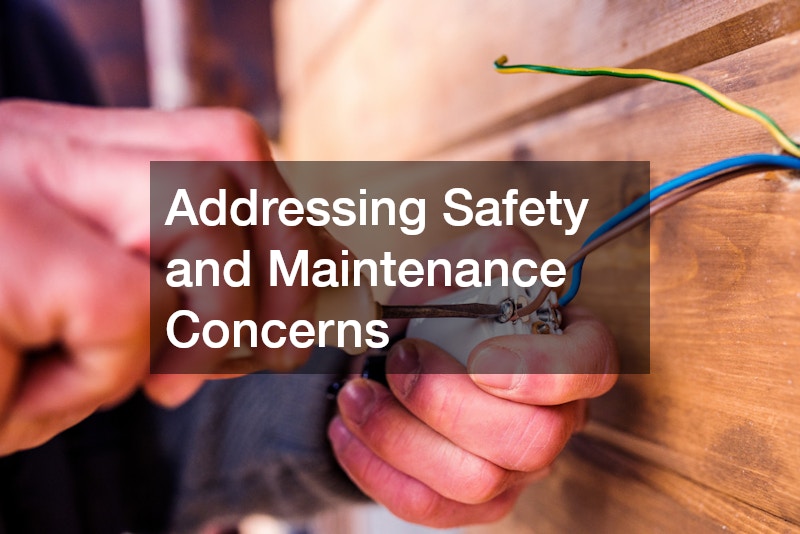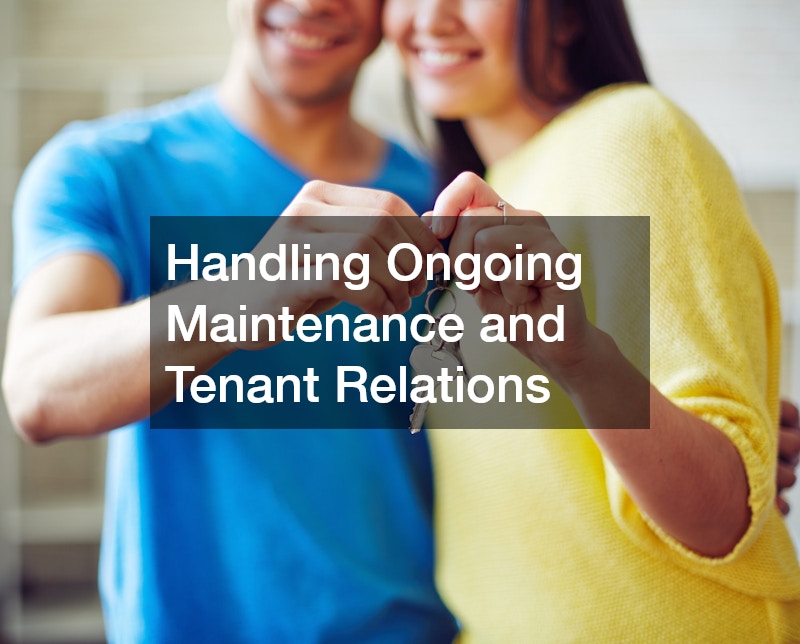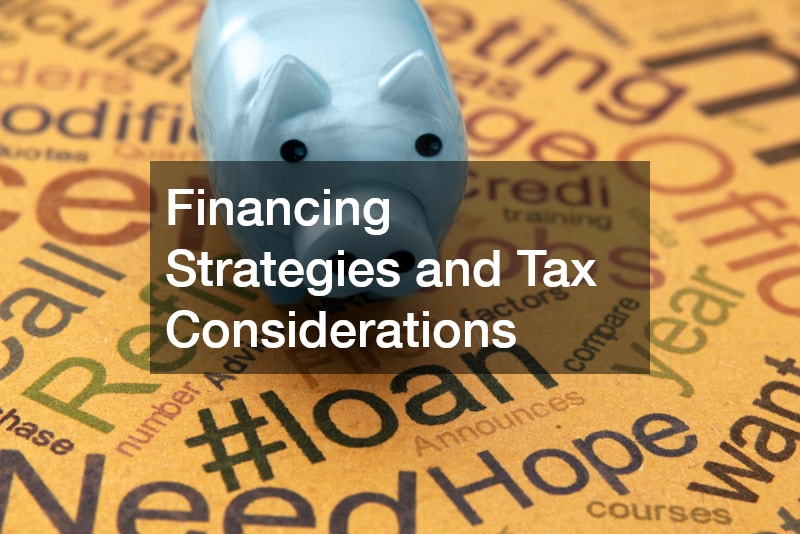Entering the world of real estate investing can feel both exciting and daunting. One of the simplest ways to dip your toes into this sector is by turning your existing home into a rental property. Whether you’re relocating for work, upgrading to a bigger house, or simply looking to generate extra income, renting out a property you already own can be a sound step toward financial stability. Yet, success isn’t guaranteed; it depends on how you prepare your property, how well you price it, and how effectively you manage day-to-day issues once tenants move in. This guide is designed to walk you through the fundamentals, from renovating strategically to hiring professional help when needed. By the end, you should have a clearer roadmap on how to transform your home into a welcoming, profitable rental.
Evaluating the Viability of Your Home as a Rental
Before you even begin renovations or marketing, you need to figure out whether your property is well-suited for the rental market. Start by researching local demand. If your home is located near schools, universities, or business districts, you might find plenty of potential tenants. If it’s situated in a vacation hotspot, short-term rentals could be an option, although that often comes with different regulations and property management challenges. Be sure to check local regulations on rental units—some cities have restrictions on how many properties can be rented, while others may require specific inspections.
Next, analyze your finances. List out any outstanding mortgage balance, taxes, insurance, and any possible homeowners association (HOA) fees. Compare these with potential rental income by looking at similar properties in your neighborhood or consulting a property listing website. A best-case scenario is when your monthly rent exceeds ongoing expenses, leaving you with positive cash flow. Even if you’re merely breaking even on monthly costs, you may still benefit from property appreciation over time. Keep in mind, though, that real estate values can fluctuate, and a market downturn could affect your equity or make it harder to find tenants at a desirable rate.
Once you have a clearer picture of your likely revenue and expenses, consider the additional overhead of property upkeep. There could be unexpected costs such as emergency repairs, appliance replacements, or professional services. Common examples include ac repairs or calling a plumbing company in the event of leaks. Budgeting a portion of your monthly rental income for these unforeseen issues will help you avoid financial strain in the long run.
Making Essential Home Improvements

When converting your home into a rental, it’s crucial to strike a balance between creating an inviting environment and not overspending on luxury upgrades you can’t recoup through rent. Potential tenants typically value functionality, cleanliness, and safety above all else. That said, certain upgrades can significantly boost your property’s appeal.
If you’re taking a close look at your kitchen, for instance, you might consult kitchen remodelers about minor facelifts like updating countertops or installing modern fixtures. You don’t necessarily have to shell out for top-of-the-line appliances unless you’re targeting high-end tenants. If you plan to market your property to a premium demographic, then tapping into a luxury home remodeling service could yield a higher monthly rent—but be sure the area and local market justify such an investment.
Outside, curb appeal matters. Peeling paint, uneven walkways, or overgrown grass can turn off potential renters before they even step inside. Simple measures like repainting the exterior or hiring local landscapers to tidy up the front yard can make a world of difference. If your property features a large yard or has the potential to create private outdoor space, you might also consider contacting fence companies to install or repair a fence. A well-defined yard often appeals to families with pets or children, allowing them greater peace of mind. Be strategic: you want the home to look inviting without investing more than you can recover in rent.
Addressing Safety and Maintenance Concerns

Safety should be a top priority, not just for the well-being of your tenants but also because legal liabilities for landlords can be significant. Routine inspections can help you identify potential hazards: fraying wiring, clogged gutters, or questionable structural elements. Have your electrical systems checked for outdated components or overload risks. Also, a thorough inspection of plumbing, from the water heater to bathroom fixtures, can prevent future emergencies that might lead to expensive damage and lost rental income.
Outdoor areas require attention, too. If you have a swimming pool, regular swimming pool maintenance is non-negotiable. An unclean or improperly treated pool can pose health risks and legal liabilities. Proper fencing and locking gates might also be required by local regulations to ensure child safety. If your property has a fireplace, hiring a chimney cleaner to remove soot and check for ventilation issues is highly recommended before the new tenants move in. Neglecting fireplace care can lead to fires or carbon monoxide build-up, which is both dangerous and legally problematic.
Don’t overlook less obvious areas like the garage. Worn or cracked garage flooring can be both unsightly and hazardous if it leads to slips. Simple epoxy or specialized flooring solutions can spruce up the space, providing a cleaner, safer environment for cars and stored belongings. Potential tenants often pay attention to a garage’s condition as it’s typically used for both vehicle parking and general storage. Fixing these issues upfront not only boosts your property’s appeal but also reduces the likelihood of emergency repairs once tenants are settled in.
Deciding Between Self-Management and Professional Help
After the home is updated and well-maintained, you’ll face another important decision: should you manage the rental yourself or hire a property management service? Self-management can save you money on fees and commissions, but it demands significant time and energy. You’ll need to handle everything: advertising vacancies, screening applicants, scheduling repairs, collecting rent, and dealing with tenant disputes or late payments. If you work a demanding full-time job or live far from the rental property, self-management can become stressful and impractical.
A property management company, on the other hand, handles the day-to-day chores for a fee, often around 8–12% of the monthly rent. They typically have established relationships with fence companies, local landscapers, electricians, and plumbers, potentially securing better rates for maintenance and repairs. They can also deal with tenant screening, which is vital for minimizing the risk of late or missed rent payments. Some owners prefer this approach for peace of mind and reduced stress, especially if they manage multiple properties or want to be hands-off. Weigh your schedule, budget, and level of expertise when deciding which route to go.
Marketing Your Rental Properly
Whether you manage the property on your own or use a property management company, you’ll need a solid marketing strategy. Creating an appealing online listing is often the first step. High-quality photos are essential: capture the home’s best features, like an updated kitchen, a freshly landscaped yard, or a newly renovated bathroom. Many prospective renters shop on mobile apps or real estate sites, so your photos should clearly convey the property’s value.
A well-written description can also go a long way. Focus on what sets your property apart—maybe it’s located near great schools, or it includes a spacious two-car garage with updated garage flooring. If you recently invested in major repairs or improvements—like brand-new windows, an efficient heating and cooling system, or an overhauled kitchen—be sure to mention it. Highlighting these benefits assures prospective tenants that the property is well cared for and worth the rent price you’re asking.
Additionally, be strategic about your pricing. Aim too high, and the property may sit vacant for weeks or months, eating into your potential profits. Price too low, and you may attract an influx of applicants, but ultimately end up with less monthly income than you could have earned. Research comparable listings in your area to find a competitive rate. If you’re unsure, a property management company can guide you in setting the appropriate rental price.
Handling Ongoing Maintenance and Tenant Relations

Your responsibilities as a landlord don’t end once a tenant signs the lease. In fact, that’s when the ongoing work begins. A well-maintained property leads to fewer tenant complaints, more lease renewals, and ultimately, a more consistent cash flow. Standard upkeep includes staying on top of tasks like ac repairs and seasonal tune-ups. A malfunctioning air conditioner in the middle of summer can sour your relationship with a tenant quickly, which might lead them to move out at the end of their lease—or sooner if the problem persists.
Regular check-ins with your tenants can also help build trust. You don’t want to invade their privacy, but a quick phone call or email every few months to see if everything is running smoothly can show that you care about their comfort. Promptly address small issues like leaky faucets with a reputable plumbing company or fix that wobbly fence if it was installed by one of the local fence companies. Small repairs left untreated often grow into costly problems. By being proactive, you maintain good tenant relations and protect your property’s value.
If you have amenities like a pool or a hot tub, partner with a swimming pool maintenance provider to keep the water clean and the equipment in good shape. A pool can be a huge draw for tenants but can also become a source of frustration if it’s constantly breaking down or filthy. Meanwhile, if your property is in a region with cold winters, scheduling an annual visit from a chimney cleaner will ensure your fireplace remains safe for use and meets local fire regulations. Tenants often appreciate these little signs of proactive management and may be more inclined to extend their lease or refer other quality renters.
Planning for Larger Renovations and Upgrades Over Time
As you gain experience renting out your property, you may realize that strategic, larger-scale renovations can yield increased rental income down the line. Projects like replacing outdated bathrooms, finishing a basement, or modernizing the kitchen can significantly raise your home’s value and justify higher rent. In some markets, additions such as a home office or a second living area might be particularly appealing to remote workers or larger families.
If you’re leaning toward major upgrades—like reworking the layout for an open concept—consulting a luxury home remodeling service can provide valuable insights into how best to maximize space and appeal. However, balance the cost of renovations against potential rent increases. Pouring tens of thousands of dollars into a property doesn’t automatically guarantee a commensurate hike in monthly rental income. Study local comparables to see what high-end features yield actual bumps in rent rates, and consider working with real estate professionals who understand your local market.
In addition, evaluate outdoor improvements. If you have extensive grounds, you might hire local landscapers to design a welcoming outdoor space complete with seating areas or a small garden. Properties with well-maintained yards often attract long-term tenants, especially those with pets or children. If your yard is large, you might even consider installing a separate patio or deck for extra living space. Again, weigh the costs against likely returns. Not every renovation will pay off, so focusing on high-impact areas that boost tenant comfort and property value is essential.
Complying With Regulations and Tenant Rights
Renting property isn’t just about collecting a monthly paycheck; it’s also governed by a host of laws designed to protect both landlords and tenants. Depending on your jurisdiction, you may need specific permits, annual inspections, or safety certifications. If your property was built decades ago, lead paint disclosures may be required. Failing to comply can result in hefty fines or even legal battles. Make sure you’re up to date on your local landlord-tenant laws, which might specify how many days you have to return a security deposit, what reasons are considered valid for eviction, or how long you have to respond to a maintenance request.
While some landlords opt to manage legalities themselves, others rely on a property management service that’s more familiar with local regulations. If you go the self-management route, consider seeking legal advice or subscribing to reputable landlord associations that offer resources and updates on changing laws. This is especially important when it comes to fair housing rules, which forbid discrimination against tenants based on race, religion, gender, or disabilities. Even small, unintentional errors in your listing or screening process could land you in legal trouble if they’re perceived as discriminatory. Staying informed is a crucial pillar of being a responsible, successful landlord.
Financing Strategies and Tax Considerations

Turning your home into a rental involves more than just paying off a mortgage. You’ll need to handle a variety of financial matters, from paying for periodic ac repairs or hiring a chimney cleaner, to covering annual insurance and taxes. Some owners take out additional loans to cover significant renovations, while others rely on savings to manage upgrades. Lenders may offer different rates or terms if the property is no longer your primary residence, so be sure to talk to financial institutions about changing your home’s status to an investment property.
Tax implications also shift. Rental income is taxable, but numerous expenses can be deducted, such as property taxes, mortgage interest, repairs, and property management fees. If you invest in specific improvements—like new garage flooring, updated bathrooms, or a fence—some of these costs might be depreciated over time. Consult a tax professional to fully understand what you can and cannot write off. They can also advise on the best ownership structure—such as holding the property in your personal name or via an LLC—to manage liabilities and optimize taxes.
Troubleshooting Common Pitfalls
Every landlord encounters a few stumbling blocks. Common headaches include late rent payments, tenant disputes, and sudden maintenance emergencies. If you’re self-managing, having a clear lease agreement that spells out all rules—like rent due dates, late fees, and penalties for violating community guidelines—can reduce uncertainty. Be prepared to follow through with the outlined consequences if tenants continuously break rules or miss payments, as being too lenient can lead to ongoing issues. However, also practice understanding: sometimes genuine emergencies or unavoidable personal crises happen, and finding a fair, empathetic solution can be beneficial in the long term.
Another frequent pitfall is neglecting regular property check-ups. You don’t want to discover hidden mold or severely damaged flooring only when the tenant moves out. Periodically schedule home inspections, focusing on crucial areas like the attic, basement, or crawl spaces. If your home is older, you might also coordinate with a plumbing company for an annual pipe inspection, especially if you suspect any hidden leaks. Regular maintenance visits cost time and money, but they can uncover minor issues before they become major expenses.
Finally, watch out for market changes. If you see that your area’s rents are trending downward, you might need to adjust your asking price to remain competitive. Economic shifts, new housing developments, or changes in local employment can all affect your tenant pool. Staying informed about the local real estate scene and periodically re-evaluating your strategy ensures that you keep pace with these market dynamics.
Building a Long-Term Strategy
Once your home is successfully rented, it’s time to consider your broader real estate goals. Some landlords treat a single rental property as a side investment, content with the extra monthly cash flow. Others catch the real estate bug and see the potential for scaling up to multiple properties. If you fall into the latter category, the insights you gain from renting your first home—like choosing the best fence companies or the right luxury home remodeling service—become invaluable for your next ventures.
A long-term strategy might include periodic refinances to pull equity from your existing rental and fund down payments on additional properties. Or you might eventually sell one property once it appreciates, using the gains to invest in a more lucrative market. If you plan to expand, strong relationships with professionals—ranging from kitchen remodelers to local landscapers—will save you substantial stress and money. Over time, you’ll likely streamline your processes, from finding quality tenants quickly to executing cost-effective renovations that boost both rent and property value.
Remember, patience is key. Real estate generally offers a gradual, steady return on investment rather than overnight riches. Minor setbacks—like a difficult tenant or an unexpected major repair—are normal parts of the journey. Each challenge also brings with it a learning opportunity that, if leveraged wisely, can refine your approach and set you up for greater success. Sometimes it helps to keep a “property journal” documenting significant decisions, contractors you’ve worked with, and lessons learned. Such records can be a goldmine of data if you decide to replicate your success or sell the property and want to provide prospective buyers with a robust history.
Turning your home into a rental property is an ambitious yet rewarding endeavor. By taking care to address safety features, perform strategic renovations, and partner with the right professionals, you’ll position your rental for long-term success. Maintaining a balance between cost-conscious updates and creating a warm, livable space will attract quality tenants who treat your property respectfully, pay rent on time, and possibly become long-term occupants.
Ultimately, the goal is to foster a space that tenants are proud to call home, while you, the owner, benefit from both consistent rental income and the potential for property appreciation. With thorough planning, continuous learning, and a willingness to adapt, you can enjoy the dual rewards of financial gain and personal satisfaction. Whether you choose to self-manage or use a professional property management service, a well-maintained, thoughtfully upgraded rental property can become a cornerstone of your broader financial and personal growth. Embrace the process, stay informed, and watch your newfound role as a landlord offer exciting opportunities and fresh perspectives on real estate.




